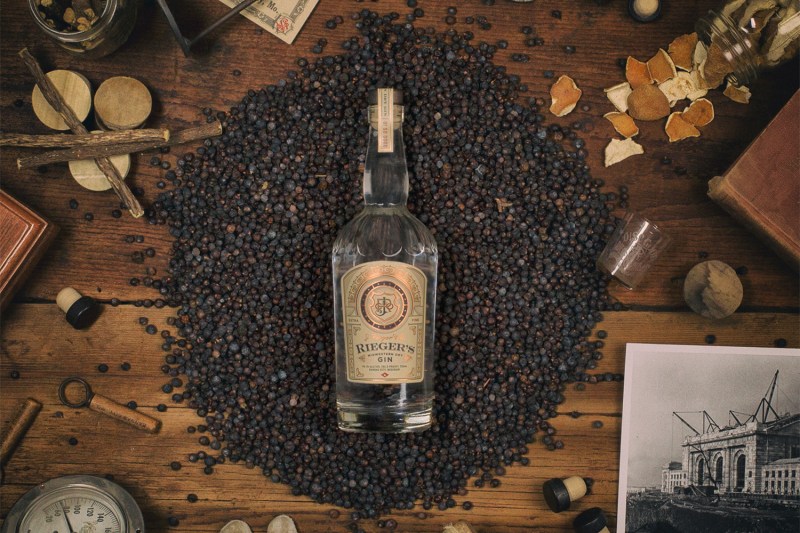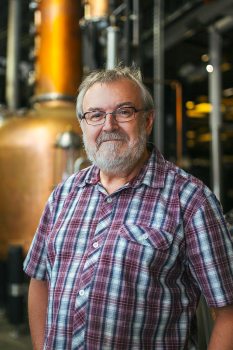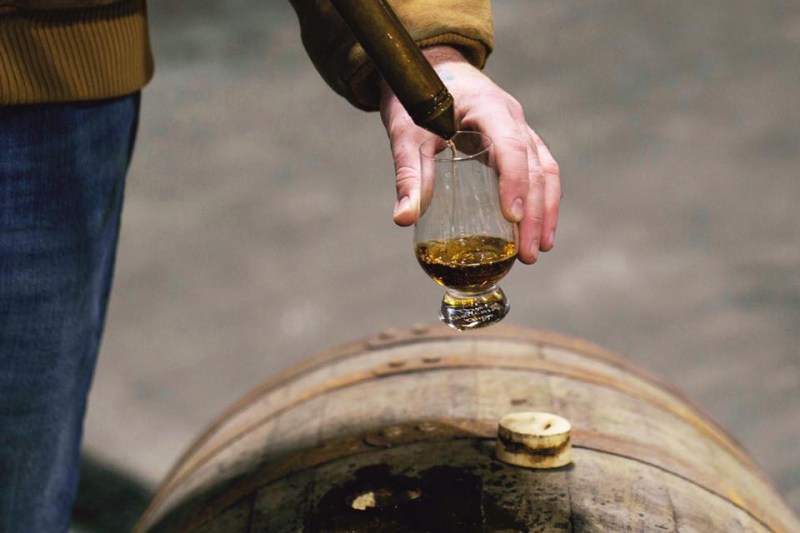
Following 42 years at Tanqueray, one of the world’s quintessential gin brands, Tom Nichol retired, but that didn’t mean he was done. Instead, he’s emerged in Kansas City helping J. Rieger & Co. launch an authentic London-style dry gin in the American Midwest.

Midwestern Dry Gin hit the markets and while he’s made lots of gin variants in his career, he knows this one shares the same quality all the others have as well.
“As soon as I met the guys in Kansas City, I knew this was a project that was meant to be,” Nichol said. “The simple side of things was that this gin for the Rieger family was more personal to me.”
Unlike the behemoth scale of Tanqueray, J. Rieger & Co. is still a modest startup operation. In fact, prior to working with Nichol, Rieger head distiller Nathan Perry — who was a science teacher not all that long ago — hadn’t even made a gin before. He has now had the pleasure of working under the tutelage of two legendary purveyors of spirits, Nichol and the late whiskey legend Dave Pickerell.
“I didn’t even know who Tom was,” Perry laughs now. “When he first came in, he was a little hard to read, but he was just trying to figure us out. He’s coming from Tanqueray and Diageo and we’ve got a couch and a football we can throw around. But when he agreed to make the gin, I couldn’t sleep. I was terrified.”
“He’s coming from Tanqueray and Diageo and we’ve got a couch and a football we can throw around.”
As a relatively new distiller (who also worked at Kansas City’s Boulevard Brewing), working with Nichol and Pickerell has felt a little like cheating for Perry.
“There are a lot of things I wouldn’t know to do, almost counterintuitive things, all these nuanced things,” he said. “Instead of spending decades figuring them out, I had people who spent decades figuring it out tell me.”
The dry gin recipe that turned into Midwestern Dry Gin was one, at least according to Perry, that Nichol had from his days at Tanqueray he just never put to the test. At J. Rieger & Co., Nichol was given the liberty to take that idea and make it “the most expensive way we can.”
Perry said because J. Rieger isn’t putting out insane volumes, they’re not taking any cost-cutting shortcuts.

Nichol was so adamant about using the right ingredients, he denied the team the idea of using local juniper and instead brought in juniper from a supplier he was familiar with.
“We’re so small they said, ‘No thank you,’” Perry said. “We had to order four times the amount we wanted. It was important for us not to compromise an ingredient or process. If you know the right way — and we did with Tom — you do it the right way.”
Nichol enjoys the rapidly expanding gin market in the U.S., but also knows there’s an ultimate downside to the explosion globally.
“If you know the right way — and we did with Tom — you do it the right way.”
“It’s great to see so many people getting involved,” he says. “But with the emergence of so many gins, it can only mean that along with the good ones there will be a lot of bad ones, mainly through a lack of knowledge and experience.”
For J. Rieger & Co. and Perry, Nichol has set the standard by telling them, “You have no excuse not to make the best gin in the world,” so that’s the bar Perry’s going to try to live by.
Later this year, J. Rieger & Co. will open a new distillery with a still designed by Nichol and Perry and built by Vendome Copper & Brass Works.
Perry is already toying with some other gin recipes, but knows he wants to focus on Midwestern Dry Gin, at least until “another gin needs to exist.”
As for Nichol now? He heads back to Kansas City fairly regularly, to help out with the gin and enjoy a Boulevard Brewing Tank 7. A fairly young retirement age has him with plenty of ideas in the noggin.
“I’m very happy with life, so I don’t have any plans or ambitions,” he says, “but hey, you never know.”


